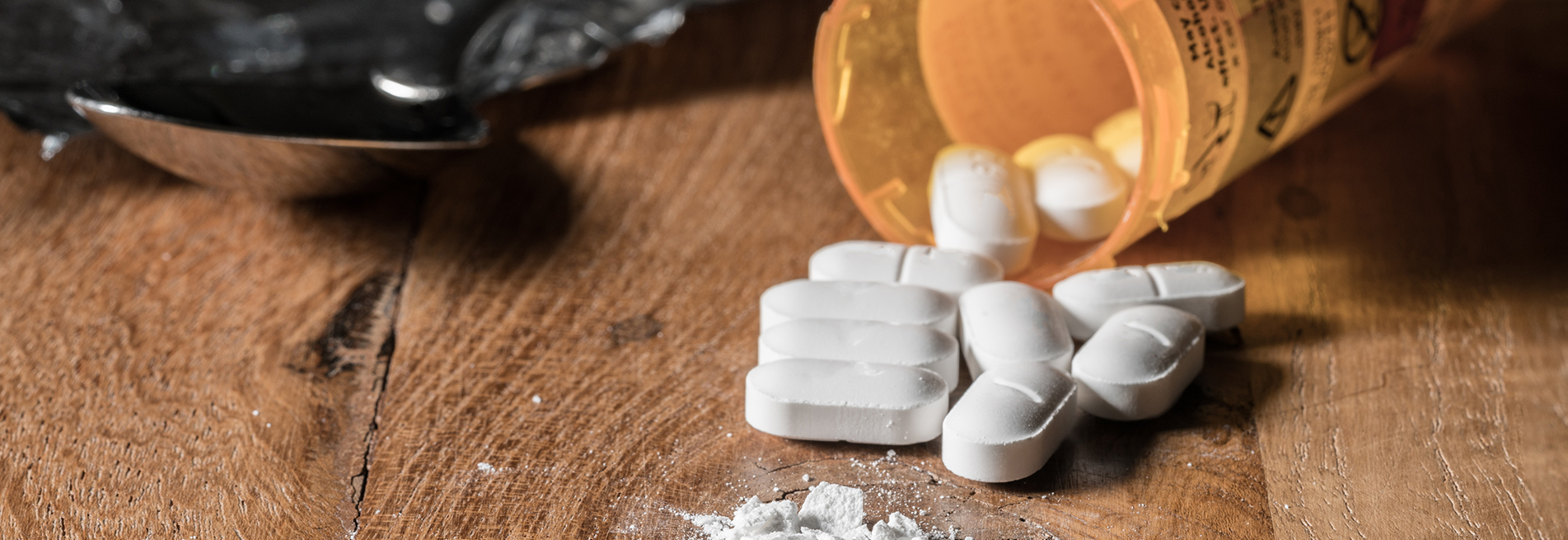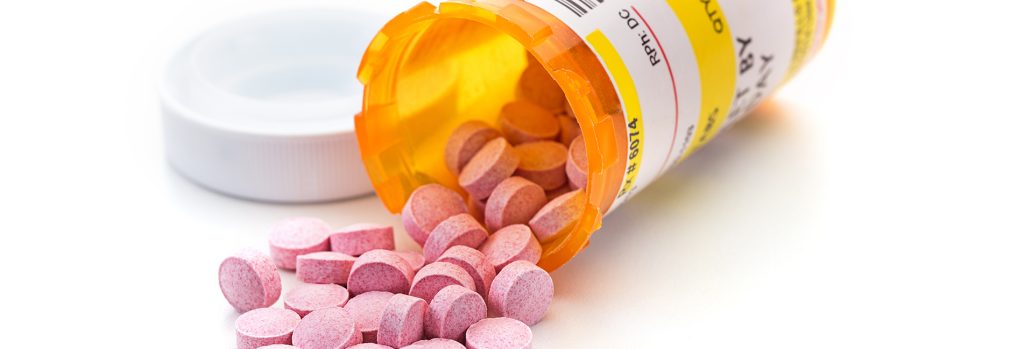
Opioid Addiction
Dangers of Opioid Addiction
Table of Contents
Opioid addiction is most often related to Fentanyl, OxyContin, or Vicodin. However, Percodan, Demerol, and Methadone are also common opioid addictions.
These synthetic drugs are highly addictive and dangerous. Many have valuable medical purposes but are rarely used the right way.
Even for those following a prescription may find that their potency makes them easy to abuse. In both opioid and opiate abuse, there are troubling consequences.
Addiction, overdose, and other negative side effects are common.
Immediate Placement in Opioid Rehab
Opioids vs. Opiates
The words opioid and opiate are often used interchangeably. They refer to similar substances with one significant difference. Opiates are derived naturally from seeds contained in opium poppy plants.
Opioids, on the other hand, are synthetic. Opioids produce similar effects to opiates. But their active ingredients are created chemically, rather than extracted naturally.
They can also be partially synthetic. In these cases, some components are chemically-altered but they also contain natural opium.
Because the term opioid is used to describe any drug that produces “opiate-like” effects, it includes natural opiates, too.
Both synthetic opioids and natural opiates have led to an outstanding number of addictions and overdoses.
This is one reason why it is often referred to as “the opioid epidemic” or “the opioid crisis.”
Learn More About our Opioid Rehab Program
Opioid Addiction Epidemic
In a 2018 survey, about 10.3 million people misused opioids within the past year. These numbers account for individuals over the age of 12. This number includes 9.9 million prescription painkiller misusers. And 808,000 were users of heroin.
About 506,000 people had misused both. These numbers were reported by the National Survey on Drug Use and Health.
They highlight the problem that scientists and addiction health experts have been trying to get a handle on for many years. But both prescription and illicit opioid use can be difficult to monitor and control.
Painkiller Addiction is a Problem
Painkiller addiction is a problem that often occurs after an injury or accident. Many patients start using these prescribed drugs with good intentions. When used properly, they ease the pain while your body heals.
After a while, you may notice that your medication isn’t as effective as it was when you started using it. This happens because your body has begun building a tolerance.
The substance is building up in your body and you’ll need more of it to achieve the same effects. Once a tolerance has formed, you may find yourself taking larger doses. You’re also likely to start experiencing cravings.

Have You Moved Beyond a Genuine Medical Dosage
Once you have moved beyond a genuine medical dosage and felt cravings or withdrawal symptoms, it is likely that an opioid addiction has formed. You may continue upping your dosage or seeking stronger drugs.
These behaviors may compromise your health and alter your thoughts and behaviors. You may want to quit but find that you cannot do it on your own. Opioid addiction treatment can help you end the cycle.
Addiction is a strong, chronic disease that gets worse over time. You do not have to spend any more time falling victim to this disease. The best way to overcome your opioid addiction is to seek comprehensive treatment.
Opioid Addiction Side Effects
Opioids produce a range of physical and psychological side effects. Many are the same whether the opioid is natural or synthetic. Some of the most common opioid-related side effects include:
- Pain relief
- Euphoria
- Respiratory depression or slowed breathing
- Itchiness
- Nausea
- Constipation
- Dependence
- Drowsiness
- Confusion
- Memory loss
- Mood swings
- Depression
Learn how we can help you, your loved one or colleague
Opioid Addiction Treatment
Our opioid addiction treatment can help you avoid troubling side effects. It can decrease your chance of suffering an accidental overdose. It can help you repair damaged relationships and find healthier coping mechanisms. Opioid addiction treatment also helps many people avoid troubling situations.
This includes participation in dangerous or criminal activities. The benefits of opioid addiction treatment are vast. And they come from a vast number of sources. We provide services in multiple treatment settings.
Depending on your addiction and needs, we will recommend one or more of the following:
- Inpatient or residential care
- Outpatient rehab
- Partial hospitalization program or PHP
- Intensive outpatient program or IOP
- Mental health services. Our complimentary mental health assessment will help us reveal any underlying conditions that are contributing to your addiction
- Dual diagnosis care for patients with both an addiction and a mental health disorder
Each opioid addiction treatment setting features similar treatment methods.

Therapies Offered at Emerald Isle
Our various therapies, for example, will be available in any of the settings listed above. Individual and family therapy are particularly helpful. In these settings, you’ll gain a better understanding of your addiction.
You will learn how to avoid temptations, overcome cravings, and find long-term sobriety. We will teach you addiction and stress management techniques. You can use these both throughout your time here and at home. These goals are simplified when you choose residential rehab over other options. As are other goals, too.
Residential Rehab – 24-hour Access to Care, Support, and Guidance
With residential care, you have 24-hour access to care, support, and guidance. And you also have access to a medical detox. This helps us ease your withdrawal symptoms, so you have a greater chance of long-term success. It also allows us to track your progress. Intensive Outpatient Programs, Partial Hospitalization Programs, and outpatient rehab are generally used as stepping stones.
Most patients move into them after they have completed a more intensive treatment program. During a residential opioid addiction stay, you will spend several weeks or months with us. You will experience therapeutic activities from start to finish each day.
Building Support Systems that Last a Lifetime
We will help you build support systems that may last a lifetime. We remove distractions and temptations so you can focus on your recovery.
Once you’ve made progress and you feel more comfortable in your sobriety, you can move on. An IOP or PHP offers care with more freedom.
You have gathered the knowledge and skills you need to stay sober on your own. It is time to practice those skills in a more relaxed setting. You will still have medical and mental health support, but you will spend less time with us each week.
Your treatment will continue in individual and group therapies. You will visit support groups and take part in a variety of other restorative activities.
A completed program is not the end of the road. There is still work to do. And we are here to help you do it.
Costs of Opioid Addiction Treatment
The costs of your opioid addiction treatment at Emerald Isle may be covered by insurance. You may have partial or full coverage. We are happy to accept other major health insurance providers. But we know how difficult it can be to navigate insurance processes. And it is not always easy to find out what is covered and what is not.
Call today for your fast and free insurance verification. Our addiction specialist will call your provider to confirm your eligibility.
This way, you have one less thing to worry about. We will walk you through alternative options and next steps, too.
Free Insurance Verification for Opioid Rehab
Opioid Addiction Help at Emerald Isle Health and Recovery
At Emerald Isle, we pride ourselves on providing patient-focused efforts through results-driven methods.
Our primary focus is the health and sobriety of each patient, family, and community we encounter.
Ours is a truly integrated and evidence-based approach.
We offer a holistic care approach that truly works.
There’s peace and sobriety in our processes.
There is hope in recovery.
Come see why so many others looking for opioid addiction help choose Emerald Isle.
You will notice the difference immediately.